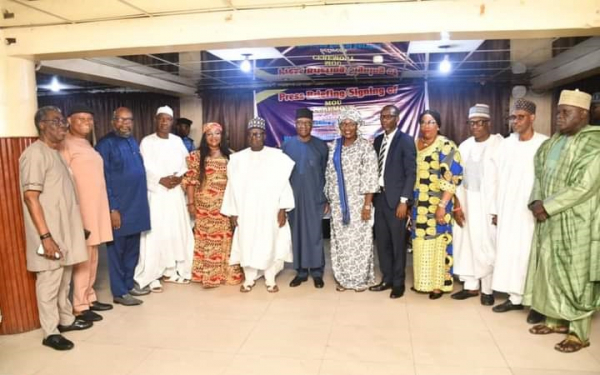Postal services are important for socio-economic development. However, in several African countries, it is not the case because the old systems are still being used. Most of those countries have decided to address the situation by using new technologies.
The Nigerian Postal Service (NIPOST) and the National Population Commission (NPC) recently signed a Memorandum of Understanding (MoU) to roll out digital postcodes in the country. The agreement was announced by Dr. Ismail Adebayo Adewusi, Postmaster General of NIPOST, during a press briefing last Thursday.
According to the Postmaster-General, the adoption of a digital postcode system will improve the efficiency of the postal administration. It is a critical system for Nigeria, where some streets have no name and properties no number to identify them, he added.
“We drew up entities in a manner that ensures every part of the country is effectively captured, using a systematic framework of alphanumeric characters from the State, Local Government Areas, Postcode Districts, Postcode Areas, and Postcode Units,” Dr. Ismail Adebayo said.
The transition from the old analog postcode system introduced in 1986 is expected to help improve mail sorting, delivery, response to emergencies, tax collection, and postal services as well as reduce crimes (banditry and frauds) and internet scams. In that light, it will boost trust between entrepreneurs and their clients.
“Such advanced addressing system will promote the proper functioning of not just the Postal sector. It is a critical infrastructure for meeting the United Nation’s Sustainable Development Goals, including poverty reduction, disease control, and provision of basic services such as water and electricity,” the Postmaster-General explained.
Ruben Tchounyabe



















